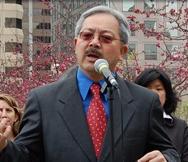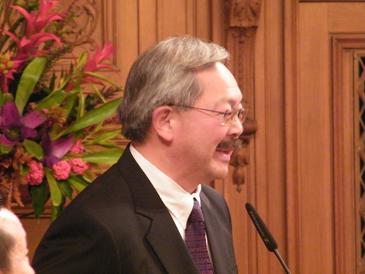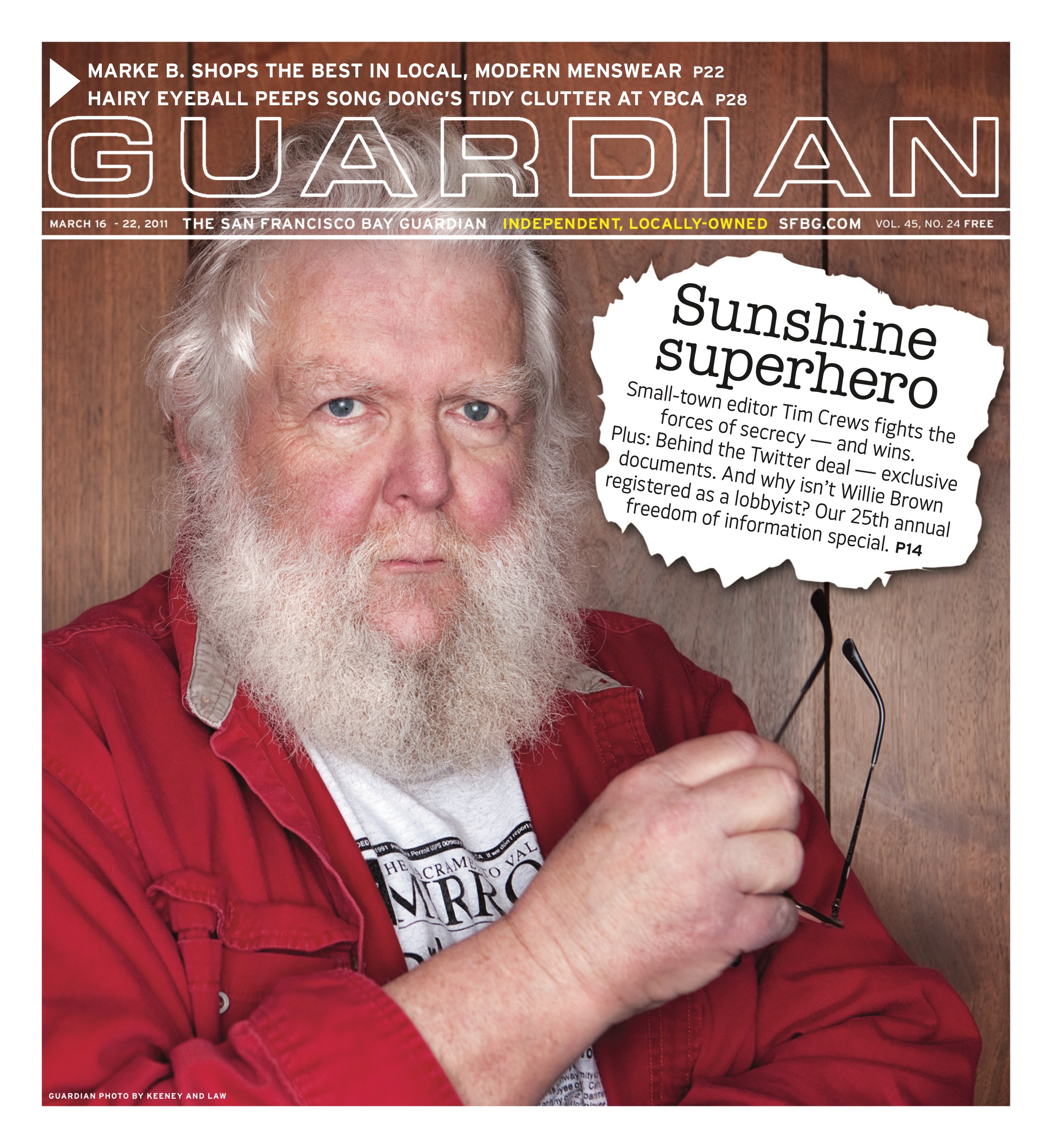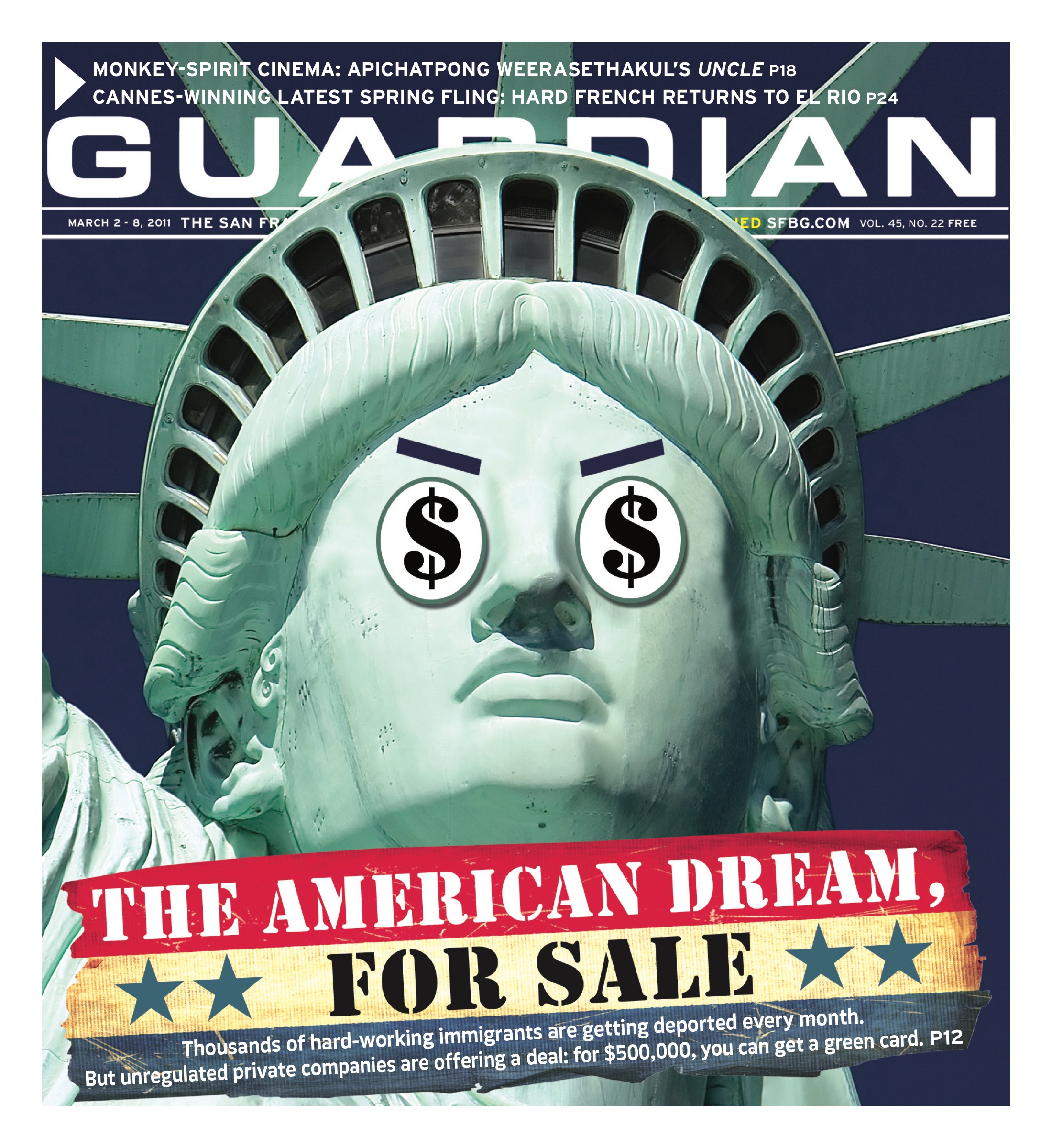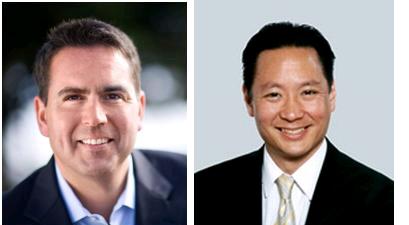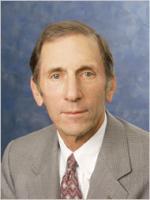rebeccab@sfbg.com
The owner of a certified minority-owned business in San Francisco is suing the city, charging that his telecommunications company went belly up after city officials falsely accused him of participating in a fraudulent kickback scheme within the city’s Department of Building Inspection (DBI).
The case and depositions of high-ranking officials offer a rare window into the inner workings of city government at a time when corruption was rife within DBI and regulations governing city contracting were considerably less strict. They also provide a glimpse at how city business was sometimes conducted under the administration of Mayor Willie Brown, a powerful figure who has resurfaced recently in San Francisco politics.
In addition, the case alleges inappropriate behavior by current Mayor Ed Lee when he was the city’s purchasing director. One of the depositions includes allegations that Lee, at Brown’s direction, approved a city contractor who was utterly unqualified and was later accused of being part of a criminal scam.
The plaintiff in the lawsuit — James Brady, CEO of Cobra Solutions — closed up shop years ago and moved to Sacramento with his wife and business partner, Debra. But he’s been locked in an ongoing legal battle against powerful forces in City Hall since 2003, when he claims the city stopped issuing payments to his company, terminated its contract, and declined to award it a new contract on suspicions of bribery.
“They want to make us look like we’re Bonnie and Clyde,” Brady told the Guardian. “We’ve never done a thing.”
Nancy Fineman, an attorney with the firm Cotchett, Pitre & McCarthy, which is representing the city in the case, said the corruption allegations against Cobra still stand and she emphasized, “The city attorney was not involved in doing anything wrong.”
In a complaint filed Jan. 7, attorney G. Whitney Leigh — law partner of former Board of Supervisors President Matt Gonzalez — alleges that a host of city officials are responsible for precipitating Brady’s financial ruin.
According to Leigh’s version of events, Cobra was dragged into an overzealous campaign to hold someone accountable after a contractor the city alleged was corrupt vanished, leaving a number of subcontractors unpaid and the city “with egg on its face.”
Leigh subpoenaed Ed Harrington, former city controller and current head of the San Francisco Public Utilities Commission; Deputy City Controller Monique Zmuda; former officials from the Office of Contract Administration, and others to testify out of court during discovery. Leigh describes the case as “a Shakespearean tragedy combined with a cartoon combined with a soap opera.”
For City Attorney Dennis Herrera, it might be more like a zombie flick. The city attorney is gaining momentum in his campaign for mayor and has taken an early lead in fundraising against his opponents. The Cobra Solutions saga might be one that he — and other top city officials — would rather forget.
CONFLICTS AND CRACKDOWNS
Appeals in the case have reached all the way to the California Supreme Court, which ruled that Herrera had a conflict of interest that should have disqualified his office from suing Cobra. Beginning in September 2000, before he was elected city attorney, Herrera provided legal representation to Cobra while working with a private firm called Kelly, Gill, Sherburne & Herrera.
Due to the disqualification, Herrera could not discuss specifics in the case. But he did offer us a general comment. “I’ve made it very clear that me and my office are going to have zero tolerance for corruption and individuals who would violate the public trust,” he said. “This case, I think, represents that philosophy.”
When Herrera was campaigning for city attorney in the November 2001 race, he ran on a platform of cracking down on fraud and corruption. The DBI case began as a triumphant delivery of that campaign promise.
In 2003, following a yearlong investigation by a Public Integrity Task Force that Herrera had convened, a corrupt DBI official named Marcus Armstrong got busted by the feds. He’d allegedly falsified the qualifications on his resume and set up shell companies to funnel money out of city coffers for his own personal gain. He pleaded guilty to corruption charges brought by the U.S. Attorney, and spent time in prison for cheating the city out of about $500,000.
Herrera brought a civil suit against Armstrong and a DBI contractor, Government Computer Sales, Inc. (GCSI), which allegedly partnered with Armstrong in a kickback scheme. Questions surrounded GCSI from the start. It only gained certification as a city contractor after being rejected multiple times by city staff as unqualified. Deborah Vincent-James, who directed the city’s Committee on Information Technology (COIT) at the time and has since died, testified in a 2008 deposition that GCSI was “fraudulent” and got the contract only because of ties to Mayor Brown.
Herrera hit a stumbling block when he amended the complaint to name Cobra Solutions and its management company, TeleCon Ltd., as another city contractor in on Armstrong’s kickback scheme. (Debra Brady was president of TeleCon, which predated Cobra. Although the Bradys insist the two entities were separate, Herrera named TeleCon in the suit as an alter ego of Cobra.)
Cobra struck back, claiming the City Attorney’s Office wasn’t entitled to file suit against the company because Herrera’s old firm had represented Brady. Herrera told us the whole thing came about “because of the 18 minutes that I billed to work for Cobra.”
Herrera’s office initially denied any conflict of interest. “Immediately upon discovery of Cobra’s role, the office screened Herrera off from further involvement in the investigation and all matters related to it in accordance with a stringent ethical screening policy Herrera established when he took office,” according to a statement issued by the City Attorney’s Office.
But the Supreme Court disagreed in a 2006 ruling. “The possibility that the City Attorney’s former client might be prosecuted for civil fraud by the City Attorney’s office may test public faith in the integrity of the judicial system,” the ruling stated, “raising the specter of perceptions that the former client will be treated more leniently because of its connections, or more harshly because of leaked confidences.”
COBRA’S CASH
The city’s lawsuit alleged that Cobra paid Armstrong about $240,000 in bribes in exchange for $2.4 million worth of business with DBI from April 1999 through 2000. The allegation was based on checks Cobra sent to Monarch Enterprises, which the city said was an Armstrong front. The investigation found that GCSI paid Armstrong about 10 percent of the contract amount in a similar fashion.
“Armstrong used these and all other funds received from Cobra for his personal benefit and gain,” the suit claimed. The complaint also charges, “Cobra … knew that Monarch enterprises was wholly owned and controlled by Armstrong, and that any payment made by Cobra was in fact a payment to Armstrong.”
But Cobra’s suit claims an FBI investigation into Cobra’s involvement found no wrongdoing. Additionally, “We turned all of our records over to the U.S. Attorney,” Leigh noted, and that didn’t lead to a criminal prosecution.
Brady calls the corruption allegation “a big lie,” and says his company’s name has been wrongfully sullied. He says Armstrong led him to believe Monarch Enterprises was an Internet company performing training, support, and computer security upgrades as a subcontractor. The bills came in, and Cobra believed it was responsible for paying for the service, Brady said. “We mailed the checks, and never thought about it.”
Before the trouble started, Cobra Solutions was in a growth phase, having gone from four employees to 35 in just a few years. James and Debra Brady moved from Colorado to San Francisco in the late 1980s with nothing. James Brady worked as a manager in several SROs, became a member of the Tenderloin Merchant’s Association and helped establish a credit union serving low-income residents.
The couple established TeleCon Ltd. and started out as city subcontractors providing voicemail services. At first, they had very limited resources. “Prior to being able to afford an office, Debra frequently used the telephones in the women’s lounge at Nordstrom to conduct business,” according to her bio.
Cobra was established after Vincent-James urged the Bradys to submit a bid for an upcoming contract. The city had opened up a Request for Proposals (RFP) for vendors who wanted to be admitted to the Computer Store, an entity created to speed up municipal orders for technical services.
Before then, it could take six months for the city to purchase so much as a desktop computer. A Human Rights Commission vetting process, designed to ensure that city contractors adhered to environmental and social justice criteria, caused long delays. Then-City Purchaser Ed Lee created the Computer Store to solve this logistical challenge. Vendors who applied for membership were vetted in the RFP (minority-owned businesses were given preference), admitted as certified contractors, and granted preference by city departments in need of IT services.
Cobra’s first departmental contract through the Computer Store was a $1.3 million agreement to provide technical services for DBI, working with Armstrong. Things got off to a rough start.
“We could never find the guy, he would never be at work, and when we did see him, he was complaining,” Brady recounted. According to Cobra’s complaint, “it ran into a series of disputes with DBI and Armstrong over the scope of work and particular payment issues,” and Cobra was eventually awarded a settlement reflecting services it provided after Armstrong changed the scope of the work.
Brady says he sought city help in dealing with Armstrong. According to Cobra’s complaint, he appealed for assistance to COIT, which oversaw the Computer Store. Cobra’s relationship with Armstrong soon soured, and the DBI deal dissolved.
According to the description of Vincent-James, “The relationship between James Brady … and Marcus got worse … Marcus got another company involved because James Brady would not do what Marcus wanted to do.”
The other company was GCSI.
NEW PHASE
Things got better for the Bradys before they got worse. Cobra became one of the city’s largest technology services providers, netting $14.5 million in contracts with various city agencies by 2003. They relocated to a nicer, more spacious office in the Financial District.
A partnership with IBM granted them access to higher credit limits than ever. The couple had a home custom-built in El Sobrante. When GCSI vanished without a trace, Vincent-James called on Cobra to hire some of the GCSI subcontractors who had gotten burned in the process, according to a deposition from former city purchaser Judith Blackwell.
By 2003, the Public Integrity Task Force’s DBI investigation was in full swing, but Brady didn’t know it. He says he started experiencing problems getting paid, yet couldn’t get an explanation from city agencies.
According to Cobra’s complaint, “The city intentionally frustrated payments to Cobra and TeleCon because investigators hastily and incorrectly concluded that the companies had conspired with Armstrong in a GCSI-type scheme to defraud the city.”
Fineman, the city’s attorney, said she strongly disagrees with “the idea that we just stopped and left them in the lurch,” emphasizing that there had been a whole separate legal proceeding arising out of the fact that “Cobra was not paying its subcontractors,” in violation of its contract.
The city defended its decision to delay Cobra’s payments by pointing to the GCSI scandal, which had left city agencies high and dry. “By the time the City discovered GCSI’s fraud and stopped making payments to GCSI, GCSI had already received millions of dollars in city payments that were not then passed on to the subcontractors,” a letter from the City Attorney’s Office to Brady’s attorneys explained. “Once the city started investigating the payments to GCSI that Marcus Armstrong authorized, GCSI’s assets, officers and staff disappeared. … The city has an obligation to its taxpayers to prevent the GCSI scenario from unfolding with regard to Cobra / TeleCon.”
Brady insists that because Cobra couldn’t get paid, it couldn’t pay its subcontractors, or its creditors, either — and the financial holdup triggered a cascade of losses. “I’ve got IBM, Booz Allen Hamilton, and American Express breathing down on me like a dragon,” he said. “Everybody wants to get paid. We owed folks after we couldn’t collect our receivables.”
The bills were piling up. “We were sinking fast,” said Debra Brady, “so we sold our house in El Sobrante.”
Brady said he was stunned to learn that Cobra had been named in Herrera’s suit.
“I have 37 employees, and I had to go in and tell them. I was all choked up and the phone was ringing, and it was my attorney on the line telling me that the FBI was coming. I could not believe that after everything we had achieved in the last three years, my former attorney was filing a lawsuit against me.”
CLEARING THEIR NAMES
After filing the complaint against Cobra, the City Attorney’s Office called on the company to submit to an audit — but Cobra refused on the basis that Herrera’s firm had represented it in the past. “The City Attorney’s assumption of the role of auditor seems calculated to exacerbate and expand the existing conflict of interest,” Cobra attorney Ethan Balogh wrote in an April 2003 letter. “This problem could easily be solved by allowing an agency other than the City Attorney to conduct the audit.”
In a lengthy back-and-forth, Herrera’s office responded: “You have never explained why your client, having been caught sending over $240,000 in cash to a San Francisco IT manager who authorized over $2.4 million in payments to Cobra/TeleCon during the period of time which he received those payments, has elected not to immediately … open its books and records to the city. Instead … you have raised a host of constantly-shifting objections and arguments as to why the city’s demand was inappropriate.”
Cobra’s lawsuit charges that the City Attorney’s Office never informed the Controller’s Office that Cobra would have allowed an audit by another party. At the same time, it charges, city attorneys weren’t allowing Cobra to communicate with the controller directly, due to the legal dispute.
“The question of who would do the audit and whether or not the City Attorney was doing the audit was not something that I was aware of or certainly had not agreed to,” Deputy City Controller Monique Zmuda said during her deposition.
Meanwhile, Cobra had received the highest Human Rights Commission score of any bidder for a renewal on the Computer Store contract, an HRC document shows. Brady received a letter stating that his company would be awarded a new Computer Store contract — but shortly after, he got a second letter reversing that award.
Judith Blackwell, who oversaw city purchasing under Brown’s administration, explained why during her deposition with Leigh. After Cobra’s bid evaluation, Blackwell testified, her office moved to award the contract — but the controller intervened, saying Cobra shouldn’t be awarded a new contract because of the Armstrong scandal. Blackwell wasn’t willing to throw Cobra out, however.
“I learned from watching politics that I cannot afford to bend the rules,” Blackwell testified. “If I step outside the precise boundaries in any way, or if any African American administrator does, they are probably not going to be interpreted in the same way as if anyone else did it. Based on the … procurement code, there is no way that I could, as the purchasing director, just throw them out.”
Blackwell testified that Zmuda requested that she sign paperwork denying Cobra the contract, and Blackwell received a warning when she refused. “She told me that I needed to remember that when [Mayor Brown] was gone that they, the Controller’s Office, and [Chief of Staff Steve Kawa] — I knew that is what she was implying — were in charge,” Blackwell said. Once Mayor Gavin Newsom replaced Brown, Blackwell was let go. She now lives in New York City.
Blackwell testified that losing her job came as a surprise, since she’d worked on Newsom’s campaign and expected to keep her position. “I had asked him something about why it happened and he said … he knew nothing about it and people were acting without, you know, basically not at his direction,” Blackwell testified. “I said, well, Mayor Newsom, you are in charge. And his response was, oh, I wish that were so.”
ED LEE APPROVED UNQUALIFIED CONTRACTOR ACCUSED OF CORRUPTION
GCSI — a company accused of defrauding the city after improperly being given a city contract by Ed Lee, allegedly at the urging of then-Mayor Willie Brown — is long gone.
“I don’t think they’re around,” Nancy Fineman, an attorney representing the city, told the Guardian. “We’ve just been focused on Cobra and TeleCon.”
The story of how GCSI came to be a city contractor may be the most fascinating part of this case, one that could have repercussions today, even though it happened in the late-1990s.
Like Cobra Solutions, GCSI was a contractor with the city’s Computer Store — gaining admission after being repeatedly rejected by city staff, according to a 2008 deposition with former COIT director Deborah Vincent-James, who has died.
Vincent-James testified that GCSI didn’t meet the minimum qualifications and recounted how, during an interview with city officials about the bid, a member of the City Attorney’s Office noticed a wire peeking out from the suit of a GCSI representative who had been surreptitiously taping the meeting.
“San Francisco was not aware of GCSI’s wrongful conduct, financial problems, or legal difficulties at the time it hired GCSI to work on the DBI projects,” a city lawsuit claimed. Nor had the city realized that, “GCSI’s president and owner had been arrested and imprisoned by a federal judge for contempt of court and for disbursing funds in an effort to avoid …efforts to collect its loan.”
GCSI principal Robert Fowler resided in both Washington, D.C., and California, was believed to be a citizen of Sweden, and was also the director and owner of a bank located on the Caribbean island of St. Vincent, according to Herrera’s complaint.
“From day one, I knew that they were not qualified,” Vincent-James’ deposition transcript reads. She went on to say that the official city process for evaluating contractors was “totally bypassed.” Nonetheless, “We had to admit them to the Computer Store.”
“Who told you, you had to admit them to the Computer Store?” attorney Whitney Leigh asked.
“The director of purchasing,” states Vincent-James’ deposition transcript. “Ed Lee.”
She went on to testify that Lee had been acting under the direction of Mayor Brown. According to her deposition, “[Lee] was directed by the Mayor’s Office and told to do an evaluation process. They evaluated them. They were put in the store.” She also testified, “Principals of GCSI hired an attorney who had been in the State Legislature with Mayor Brown and … GCSI had felt that because we were asking intrusive questions during the oral interview, such as ‘Why do you have that wire hanging out of your coat?’ … They felt that biased the committee toward … not hiring them.”
Neither Brown nor Mayor Lee’s office responded to requests for comment.
GCSI is still a codefendant in the complaint, but the principals of the defunct company seem to be off the hook. A 2008 story from the Anchorage Daily News noted that Fowler had emerged as the head of a natural gas company in Alaska. The Bradys, meanwhile, are getting ready for another court date in March. “We keep going to court,” Debra Brady said. “I’m kind of like, when is the end coming?”



